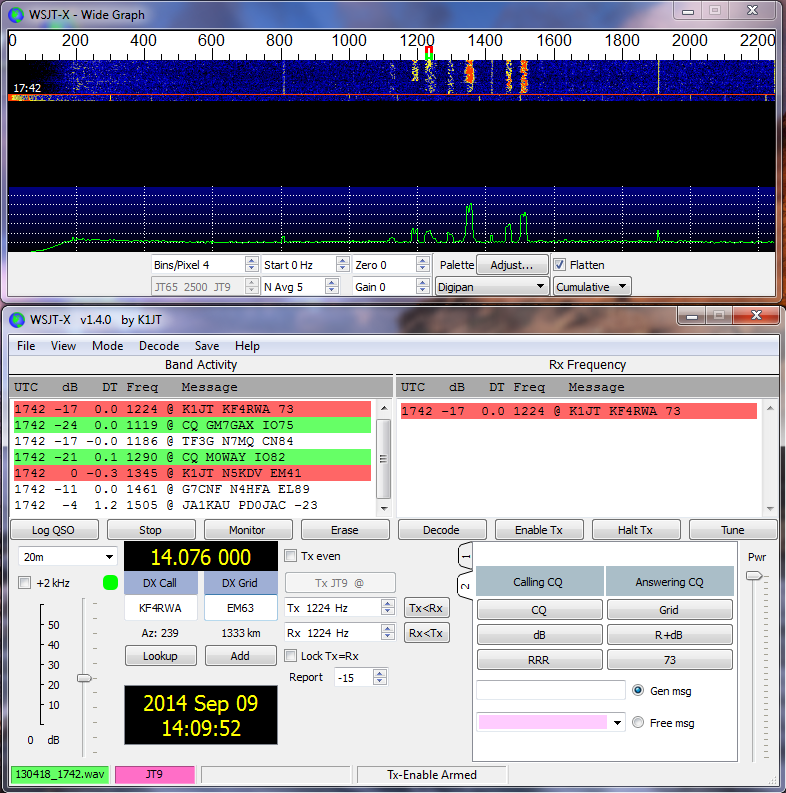WSJT-X 2.0 Release Candidate 2 available for macOS
Release candidate 2 of WSJT-X version 2.0 is now available for macOS. WSJT-X 2.0 is a major upgrade to WSJT.
Candidate releases are intended for beta testers: individuals interested in testing the program’s new features and providing feedback to the WSJT Development Group. At the time of this release they have not yet completed the WSJT-X 2.0 User Guide. Potential users of the candidate release should read Quick-Start Guide to WSJT-X 2.0 before proceeding.
Installation instructions for version 2.0.0 can be found here in the User Guide.
- Version 2.0.0-rc2 for OS X 10.9 and later can be downloaded here: wsjtx-2.0.0-rc2-Darwin.dmg
The new features are summarized on the WSJT-X website and in the Quick-Start Guide to WSJT-X 2.0. Contest-related changes include:
- Support for standard ARRL Field Day exchanges, such as 6A SNJ.
- Better support for North American VHF contests with improved handling of grids and /r rover call sign designators.
- Six-character locators and call sign suffix support for portable operators, focused on EU VHF contesting
- Support for standard contest exchanges in the ARRL RTTY Roundup, such as 579 MA or 559 0071.
- Support for call signs of up to 11 alphanumeric characters, to accommodate non-standard and compound call signs.
Support for new exchanges should expand the ability of contesters to use FT8 and other WSJT-X protocols during contests that allow digital contacts and where the exchanges is a traditional signal report and state/province/country.
According to the release notes, WSJT-S 2.0 also offers “significantly better sensitivity” (about 1 dB) for the WSPR decoder. In addition, color highlighting of decoded messages provides worked-before status for call signs, grid locators, and DXCC entities on a by-band basis. Color highlighting can also identify stations that have — or have not — uploaded their logs to “Logbook of The World” (LoTW) within the past year.
For the convenience of beta-testers, the –rc1 and –rc2 releases will offer receive and transmit capability for both the new FT8 protocol and the older one. Starting with –rc3 and the full release of WSJT-X 2.0, only the new protocol will be supported. In contrast, the new MSK144 protocol replaces the old one from the outset, with no backward compatibility.
Those participating in WSJT-X beta tests are expected to report their experiences to the developers and upgrade to the general availability release when it becomes available. Visit the WSJT-X web page for more information.

